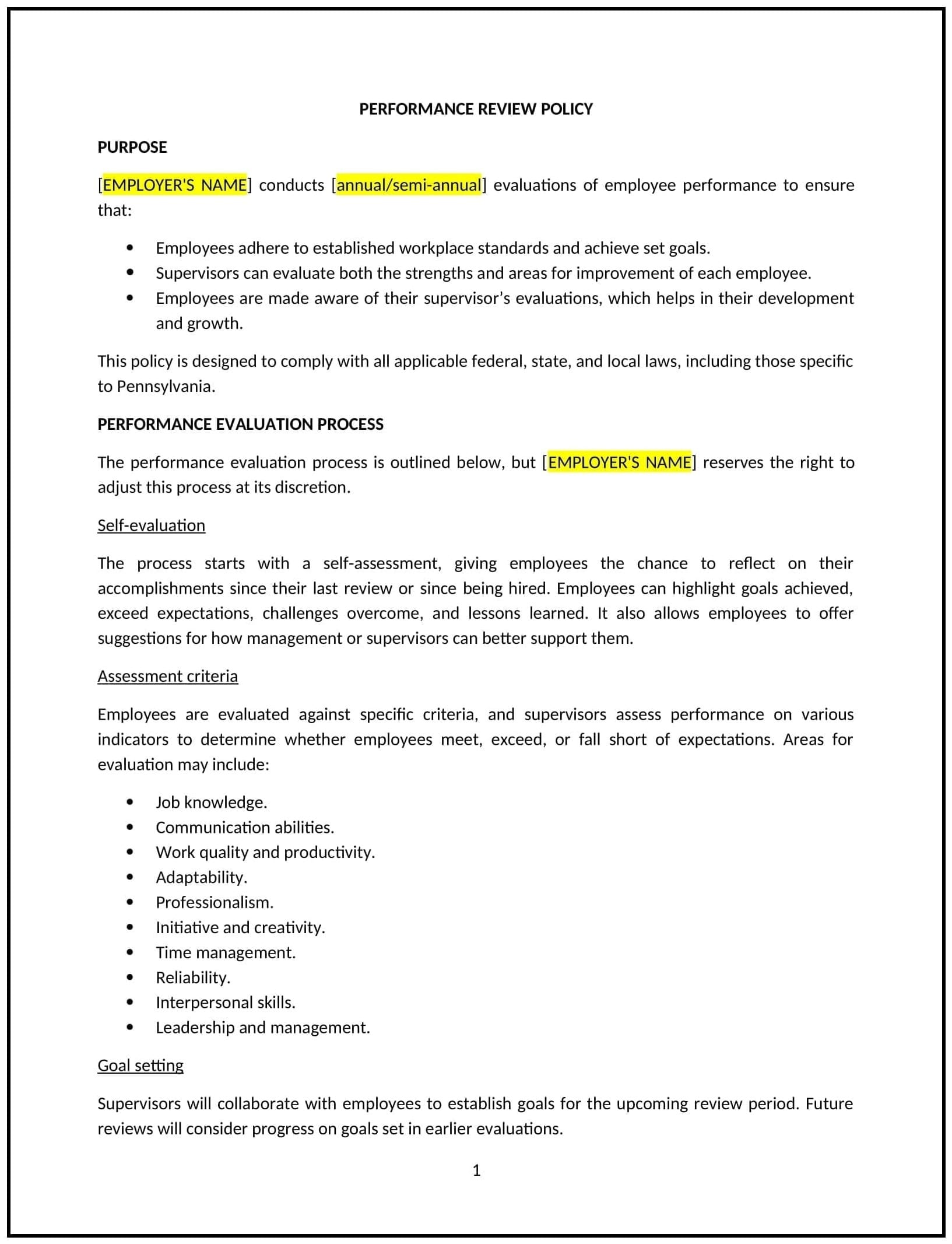Performance review policy (Pennsylvania): Free template
Got contracts to review? While you're here for policies, let Cobrief make contract review effortless—start your free review now.

Customize this template for free
Performance review policy (Pennsylvania)
This performance review policy is designed to help businesses in Pennsylvania implement a structured and consistent process for evaluating employee performance. By setting clear expectations, providing constructive feedback, and aligning performance goals with business objectives, this template fosters professional development and enhances workplace productivity.
By using this template, businesses can promote transparency, support employee growth, and align with Pennsylvania workforce standards.
How to use this performance review policy (Pennsylvania)
- Define review objectives: Clearly outline the purpose of performance reviews, such as evaluating employee contributions, identifying skill gaps, and setting goals.
- Establish review frequency: Specify how often reviews will be conducted, such as quarterly, semi-annually, or annually, based on the organization’s needs.
- Include evaluation criteria: Provide guidelines for assessing employee performance, including metrics like productivity, teamwork, and adherence to company values.
- Address feedback delivery: Detail how feedback will be shared, emphasizing constructive communication and collaboration on improvement plans.
- Reflect Pennsylvania-specific considerations: Tailor the policy to address local industry trends or workforce needs, such as aligning evaluations with regional labor market standards.
Benefits of using a performance review policy (Pennsylvania)
A well-structured performance review policy supports employee development and organizational success. Here's how it helps:
- Promotes accountability: Encourages employees to take ownership of their performance and align with business goals.
- Enhances development: Identifies opportunities for training, upskilling, and career advancement.
- Supports fairness: Provides a standardized process for evaluating performance across all employees.
- Encourages transparency: Establishes clear expectations for employees and managers during the review process.
- Reflects local needs: Addresses Pennsylvania’s workforce dynamics, such as prevalent industries and job market trends, to ensure relevance.
Tips for using a performance review policy (Pennsylvania)
- Train managers: Provide supervisors with the tools to conduct fair, constructive, and consistent performance reviews.
- Involve employees: Encourage employees to participate in the review process by setting goals and providing self-assessments.
- Document results: Maintain thorough records of performance reviews to support future evaluations and decision-making.
- Provide actionable feedback: Focus on constructive suggestions and measurable goals to help employees improve and grow.
- Review periodically: Update the policy to reflect changes in Pennsylvania labor laws, workplace dynamics, or organizational needs.